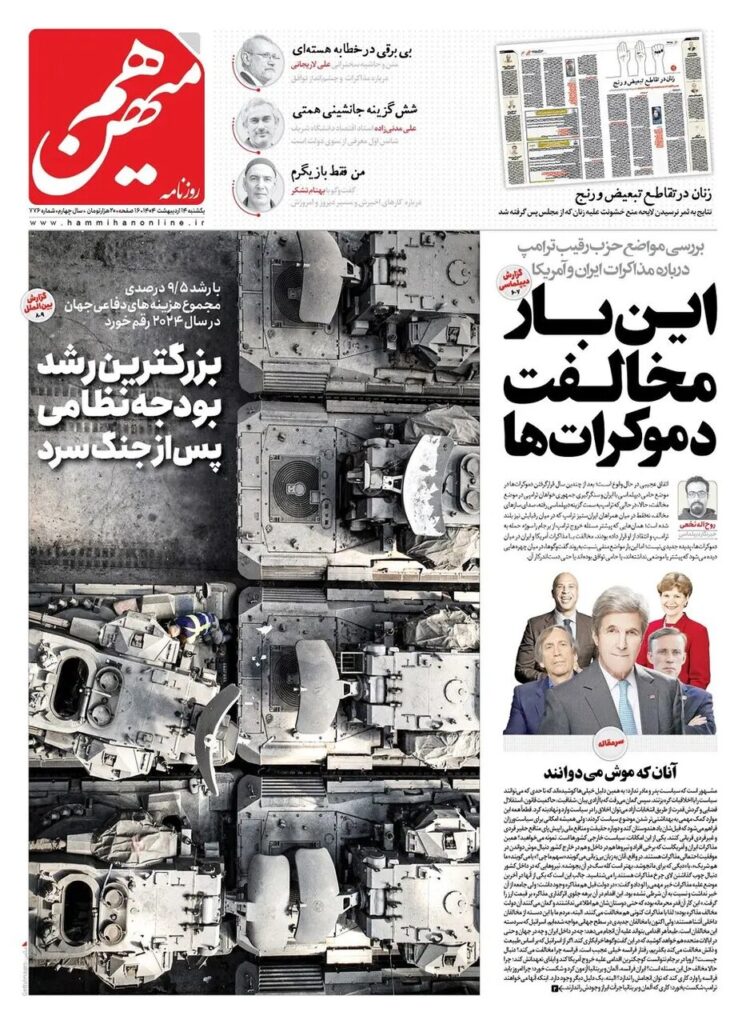TEHRAN – In an interview with American affairs analyst Amir Ali Abolfas, Ham Mihan discussed changes in the White House and the impact on Iran’s nuclear issue.
He said: When we face the positions that Americans have taken, we will see the impact of these changes. Rubio’s replacement for the waltz does not change its anti-JCPOA thinking. Waltz is sufficient for anti-JCPOA, and Rubio is in the same group. Regarding Rubio’s two recent comments on facility enrichment and testing, it should be said that the Islamic Republic will insist that enrichment must be carried out within its own territory. However, the extent and scope of it is open to debate. Iran is claiming its enrichment rights. We also need to see what Rubio means about American inspectors. If the US government wants to conduct testing outside the IAEA framework, it is almost certain that the Islamic Republic will not accept it, and this is a challenge.
Sobh-e-no: Israel is trying to cause tension
In his analysis, Sobh-e-no discussed his views on Israeli Iran and the US negotiations, writing: It is clear that Israel is strongly opposed to any agreement between Iran and the United States due to deep concerns about Iran’s nuclear program and the geopolitical importance of the nuclear agreement. Israel believes the agreement will not only prevent Iran from acquiring nuclear weapons, but will also be strengthened by lifting sanctions by strengthening Iran’s economic, military and regional influence, and by changing the balance of power at the disadvantage of Israel and its allies. There is speculation that the reason for changing the location of negotiations from Oman to Europe is due to the hidden policy of the Zionist regime of eavesdropping negotiations. However, rather than embracing the unrealistic narratives and psychological wars that Israel may propose, particularly during negotiations and implementation of (possible) agreements, the United States should rely on diplomatic and realistic principles. If the US views negotiations reasonably and adopts its policy based on an accurate, factual assessment, these negotiations will undoubtedly reach positive results.
Iran: What will happen to Iran-Russia trade relations?
The strategic agreement between Tehran and Moscow opened a new chapter on relations between the two countries. It is based on mutual interest, and Iran’s position in the geopolitical and energy equations of the region is at the center of attention on a larger dimension. This agreement is not merely a symbolic statement, but a serious attempt to redefine strategic relationships based on today’s multipolar world requirements. Iran plays an important role in connecting tensions and energy centres with a unique position in the heart of the West Asia region. With its enormous energy reserves, Tehran is known as the world’s third largest oil and second largest gas producer. Therefore, in a situation where Russia faces many tensions with Western countries and NATO due to the war in Ukraine, cooperation with a country like Iran, known as the largest regional power in Western Asia, has gained twice as much importance for Moscow. Therefore, strategic agreements are not only focused on energy and economic capacity, but are also seen as signs of strategic convergence in the face of rapid changes in international order.
Arman-e-Melli: The logic of people opposed to the nuclear association
In his commentary, Arman-e-Melli investigated the domestic approach to Iran-US negotiations and stated: There are three thinking groups on negotiations with the US. The first group, which makes up a considerable number of societies, supports negotiations with the US, believes it is reasonable for them to lift sanctions and improve the situation in the country. The second group in the minority is opposed to negotiations. The group, also known as the beneficiaries of sanctions, not only views sanctions as the root of corruption and problems, but also argues that sanctions provide opportunities. The third group is moderate, leaning more towards the first group and in favor of negotiations, but within the framework and general policy. But the reality is that no matter the nature of negotiation, three principles are constantly observed in negotiations: honor, wisdom and convenience.

